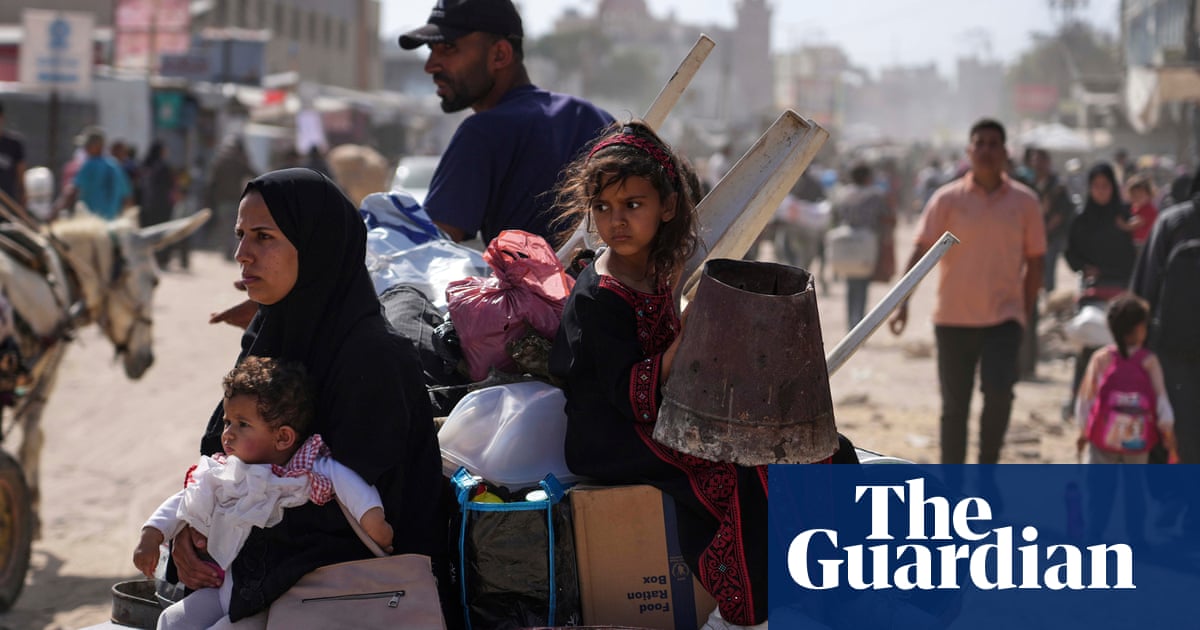Masih Alinejad has long held fast fighting for women’s rights in Iran despite ongoing threats from the regime.
Alinejad, an Iranian American dissident, has for years been targeted by Tehran for her unrelenting criticism of Iran’s government as a journalist, author and activist publicizing human rights abuses on social media – and calling for change.
Iran’s desire to silence Alinejad recently came to the forefront in Manhattan federal court: two Russian mobsters, Rafat Amirov and Polad Omarov, were on 20 March found guilty in an international murder-for-hire plot against her. US prosecutors said in court that Iranian officials contracted these men to kill Alinejad at her Brooklyn home for $500,000 after several other plots failed.
Amirov and Omarov are jailed, as is the hitman they hired, and all three face years in prison. But Alinejad knows that a sense of home – which she has so craved after being banned from her birth country – remains out of reach. Alinejad has only been back once to her Brooklyn house since the foiled plot in late July 2022.
“To be honest, behind the scenes, I cried a lot,” she told the Guardian in an interview. “This is my life. This is not just a news story. I want everyone to know that I’ve been living in a nightmare.”
For three years, Alinejad said, there were times “when I used to wake up in the middle of night without recognizing where I was, because I moved more than 20 times between safe houses”.
“This is not normal, to watch over my shoulder when I walk in the street,” she said. “I don’t have a place to call a home, to [put up] pictures of my loved ones, to grow my own plants.”
“I loved my garden in Brooklyn. The reason, actually, I planted it, I come from a tiny village. My parents were former farmers. They were street peddlers. They were growing vegetables in the garden, basil, tomatoes, cucumbers, mint, you know, and herbs, selling these vegetables to the people in the city of Babol.
“I was forced to leave my family members, so I actually tried to create a small village in Brooklyn [reminding] me of my family members, growing all those same vegetables that I used to grow up with them in the village,” Alinejad said. “I planted a cherry blossom tree and named it after my mother. I planted a peach tree, which was so tall in Brooklyn, and I named it after my father. I planted a beautiful tea tree and named it after my brother.”
“I actually tried to have a normal life in exile. This was my resistance against exile,” she said. “First, I was forced to leave my family members in Iran and now I was forced to leave my cherry blossom mother in Brooklyn, my plants, my beautiful garden, my small village.”
“That’s not a normal life, and I still don’t feel safe, even in America, miles away from my birth country, from Revolutionary Guard members.” The word “safe”, Alinejad said, is a luxury unavailable to those who “dare to challenge” Tehran.
She was especially distraught several years prior to the Brooklyn plot. Alinejad’s brother called in a panic with word that Tehran wanted to kidnap her in Turkey – by using relatives to lure her there for a family visit. He was imprisoned for two years after warning her.
Asked whether she sees a return to normalcy in the future, Alinejad said: “Having a normal life is the dream of millions of people. To be honest, I don’t want to just say that I don’t have a normal life.”
“Do you think that a woman who is getting beaten up in the street for the crime of showing her hair has a normal life in Iran? If a girl, from the age of seven, being forced to wear a hijab – if not, she won’t be able to get an education – has a normal life in Iran? No.”
“I don’t think that as far as the Islamic Republic is in power, none of us have normal lives,” Alinejad said. “So I see having a normal life the day when we have secure democracy in Iran.
Alinejad thinks that policymakers should see Iran’s brazen actions in other countries as a clear warning – and called for them to unify against the threat. But on the left, some are reluctant to speak up lest they seem critical of Iran’s culture or religion, Alinejad said. On the right, some supporting an “America first” approach to policy don’t realize terrorists prioritize the US.
“For you, America is first – but you should know that for terrorists, for the Islamic Republic, America is first too,” Alinejad said. “The first thing that they educate the youth, from the age of seven, is to say ‘death to America’, to destroy America, to hate America, to hate American values. They want to destroy you, whether you’re rightwing or leftwing, Republican or Democrat.”
“I want Americans, at the end, to know what happened to me can happen to anyone in America who cares about freedom, who cares about democracy,” Alinejad said. “If terrorists could map out different tactics, three times, to kidnap me or kill me, definitely these terrorists will do anything that they can to destroy America, because this is their ideology.”
Alinejad believes that policymakers could learn about unity from everyday Americans – including her neighbors in Brooklyn.
“There are people having [signs] supporting President Trump in their garden, and there is another sign of Kamala-Biden, Bernie Sanders, there’s a flag supporting the LGTBQ community,” she said. After news broke of the assassination plot, “I saw that all my neighbors are knocking on the door and offering me food, red wine.”
“One of them even said that if you want to hide somewhere, my house is safe for you.”
“I was like, this is the America that I love,” Alinejad said. Americans might be divided but when it comes to helping their fellow citizens in a time of need, “we’re all united”.
“That could be a lesson for the policymakers,” Alinejad said. “I believe that there is something wrong in policymaking, not just in America, everywhere, that they forget what is basic for all the citizens.”

.png) 1 month ago
27
1 month ago
27

















































